What do they do, how to get one, what happens once you have one? |
| The three agents, Julia Churchil, Jo Unwin and Oliver Munson, were brilliant. They gave three talks on: What Does an Agent Do; Once You Have An Agent, what then; How to get an Agent, as well as taking questions from the audience and even opening the floor to a few book pitches - It was great. In this blog I thought I'd bring you a few of the details from each of those talks and fill you in on a little secret. So what's the secret? Well... It turns that agents are real people, who are genuinely excited about books and finding new writers. |
The Tips
What does an agent do?
- They are the first port of call for an author and their new ideas
- They deal with almost all the paperwork
- They are deal negotiators, to make sure you are getting the best deal for your hard work
- An agent hopes to be a bedrock for a writer. They are the person you are likely to spend your whole professional career working with. It turns out that more writers in the market will/would like to leave their publisher than their agent!?
Once You Have an Agent, What Happens?
- They will help you form a strategy and vision for your writing career
- They love your manuscript, but will help you (at this stage) produce the best possible final version of it.
- They will ensure nothing goes to a publisher until it is the best possible shape
- They will get your work to the right editor for you
- They will handle deals, negotiations and 'auctions'
- Lit Agents help with expectation setting, getting deals and putting the pressure on other people you'll have to work with.
How To Get An Agent?
- Write a great book (easy right!?)
- Finish the book before you send it (despite the fact that your only asked for the first three chapters, very often, make sure you have a complete book, so you can get moving if they are interested)
- When you've finished put your book away for a while and then give it one final edit with fresh eyes
- Send one book at a time
- Always follow the submission criteria and don't deviate (its not professional)
- Make sure you have a great query letter that is: Brief; has a good tone; shows the architecture of your story (how it moves from beginning, middle to end)
- People can be turned down 30-40 times, it is fairly normal. However, if your getting template rejection letters in bulk you need to rework your story.
- Use the Writers and Artists Year book, google and other research methods to make sure you find the right literary agent who is interested in your style of writing and genre.
When we were invited to ask questions I asked one about my current book, which I was very unsure of. Fellow writers talk to me about word counts all the time. You hear things like 'it isn't a novel if it isn't 60,000 words'; 'the ideal spine width is 80,000, agents don't want less than that'; 'anything over 150,000 should be split into two books'. I am glad to say that, when I asked about my book that is currently at just 50,000 words and if it was ready to be sent, I split opinions. Two agents said that for the genre (contemporary literature) that would be fine and to send it and see what response I got - I could always work on it more later, don't force more story, a lot of debut novels try to do too much. The third agent said he generally liked to be looking at things between 80-100,000 words. However, he also said that was predominately for the sort of work he was looking at (crime, thriller, ect.)
The thing I took away from this was not to delay sending to literary agents because I'm unsure of details like this. Any little thing that might hold you back isn't worth it. Give it a try and see what feedback you get. It was clear that the panel saw books as art and every submission as a separate beats. While this meant there wasn't too many hard and fast rules to follow, it was nice to see that these were people on the other end and if they liked it, they liked it.
I hope you've found this useful and massive thanks to the Agents, York Literary Festival Team and the folks at Writers and Artists Year Book.
| My guest today is Christopher Brunt. Chris has just released his first book Ralph and the Purple Fly; a bizarre tale of a headless dog, a giant purple fly and the phenomenal price of fly spray. Having just finished it myself I can tell you it’s a brilliant read and so I have invited Chris to tell you folks a little bit more about it. Ben: So firstly, Chris, congrats on getting the book out there. It’s a brilliant read. For those of us who haven’t yet found it, can you tell us a bit more? Chris: Hi Ben, thanks for having me, it’s a privilege. Where do I start? If I’m totally honest, it’s never easy trying to describe Ralph and the Purple Fly. I think that’s my punishment for including so many different themes and ideas and comic elements, which I’ve saved up in the past year or so and poured into the story. It is, first and foremost, a story about a scientist, Professor Conrad Constant, who has achieved all he can achieve in his field of research. To the point where he is now trying to go beyond the limitations set by society and by the governing body that dictates this fictional scientific world. Without wishing to give too much away, Conrad creates a creature which he struggles to control and understand before it revolts against him and wreaks havoc across the city. |
| Ben: It’s a very weird, but great story. What genre would you define it as, Chris? I think it’s important for folks to know that this isn’t another fantasy or sci-fi novel. Chris: You’re right, there are definitely certain genre conventions in the novel that could lead either to fantasy or sci-fi and perhaps even horror. For me, Ralph and the Purple Fly represents all of the above and more. My heart wants to say Literary Fiction, though because that is such a broad category, it’s difficult to say. The thing about genre is that, while it can be extremely helpful for readers when they want to find something tailored to their needs, and also, it can be useful for writers to know exactly where their work sits; it can at times restrict people from discovering something new. I would say that if you like stories that are a little different and a little strange, which have elements of satire and humour then you will enjoy this novel. There! I’ve created my own sub-genre! |
| Chris: Yes, it began as a short story I wrote around two years ago. I then came back to it towards the end of 2013 and decided that I hadn’t done it justice and realised there was so much more scope for developing it into a larger piece. The idea first came about when I was woken by a fly buzzing around my room. After scrambling around the room trying to get rid of it I knew I was never going to win the war against this fly or get back to sleep, so instead I decided to spend the morning writing. I wrote about the fly and that’s how it originated. Ben: What a great way to find a story. And influences? |
Ben: Yes, I’ve heard a lot of good things about Gillian Flynn, though I haven’t read anything of hers as yet. One for the reading pile I think. There are a lot of classic writers in your list of influences. One of the things I love about this book is the classic narrative style, it’s very traditional. Is this a style you use a lot and why did you choose it for this novel?
Chris: For me, that sort of traditionalist voice provides so much artistic license than something trying to adhere to a particularly overt or contemporary style. The reason being, that it allows you to be completely neutral and to unravel a story in a very detailed and linear way, as you might expect in bygone novels. But it also allows for elements of surrealism and satire, which you can exacerbate against the backdrop of a very serious and formal tone. I think with Ralph and the Purple Fly I’ve opted for this classical style, set in a modern and contemporary world, while woven into these very surreal and satirical moments, because all those things together help to reinforce some of the dystopian conflict that I wanted to create with the mad scientist character and his bizarre adventurers. As a result, there are several different interpretations created out of these elements, which, aside from making the reader laugh, cry and generally be entertained, also forces them to think. Like you said, everything is held together by a recognisable and very traditional voice, which, without giving too much away, belongs to a narrator whose sanity is questionable and could be seen as totally unreliable but who is still someone you want to believe in.
It goes without saying, that this was my intention and what I hoped to create, but now it’s down to you and the reader to see if it works. But yeah, I really enjoyed using this sort of traditional or classical narrative style because it did help to open up so many more creative possibilities.
Ben: That’s a perfect description and I do love the style. It certainly does everything you’ve mentioned there. The book allows a lot to be perceived by the reader, which I think is great. It would be a great book for anyone in a book club; there’s lots of great room for discussion. Chris, like myself, you self-published your book with CreateSpace and KDP. How did you find that process and how has the response been so far?
| Chris: The response has been brilliant, it’s one thing to have your friends and family buy the book and offer you positive feedback, but when you read positive reviews from people you don’t know it is really great. The process was relatively simple in terms of uploading and formatting the book via those websites. I was very lucky that a friend of mine introduced me to Rob Jameson the graphic designer who created the book cover. Otherwise it would have meant trying to find someone else who could produce the sort of thing I was looking for. I also received some wonderful advice and tips from people I met on my Creative Writing MA who had experience with using these websites. |
It’s a huge learning curve and if you’re proud of the finished product then you can be proud of the fact that your work is accessible to everyone and will always be out there for people to read. It doesn't matter if you've published in a traditional way or self-published. What I would say to anyone considering this route, is that if your book is good enough to be read then it doesn't matter how it finds its way to the readers. The trick for self-published writers like us is to always try to put yourself out there and you have to find a happy medium between writing and marketing.
Ben: You mentioned earlier that the idea of genre and trying to place yourself can be tricky. How did you find that process and do you have any hints for the writers out there?
Chris: It depends really, if your aim is to make money and you don’t know where to begin then I would suggest picking and sticking to a genre first and foremost. I would advise that you read everything you can in your chosen area and try to find something unique that you can write about. For me it was very different, I started with something unique and then wrote the story without worrying about genre or the commercial aspects, my only concern was being true to the original idea and the novel as a whole and I didn't want to compromise to confine the piece to a particular convention. I felt the story was strong enough without worrying about that sort of thing.
Ben: So tell us a bit more about you. What drew you to writing?
Chris: Once upon a time…it all began when my dad introduced me to Bernard Cornwell when I was about fourteen; it was his King Arthur trilogy; and, when he bought me my first Dostoevsky novel. Since then all I’ve ever wanted to do is write. I think it probably has something to do with a need to be creative and to recreate my own version of things, stories, people and ideas. I love the idea of writing something and then having someone read and reimagine it to the point where it sticks with them forever. As I say, it’s very much a romantic notion but I haven’t been able to shrug it off so far.
Ben: That’s a great answer and one worth writing for, definitely. I've actually just finished reading the King Arthur trilogy myself. It’s a great set of books. So, if the folks reading want to find more stuff by you, is there more out there yet?
Chris: Besides Ralph and the Purple Fly I have some short stories published online. I wrote these stories for a project called Writers in the Park and they vary drastically in content and style. I really would urge people to take a quick look at these, along with the work of other contributing writing, because it’s a great project with lots of interesting writers involved. The most recent addition even features stories written by Icelandic writers! Links to these can be found on my website.
Ben: Well I’m chuffed you’ve mentioned that, especially as I’m one of the writers involved :] The readers of my site will be very used to hearing about the Writers in the Park project. Anything else you can tell us about?
Chris: I wrote a couple of reviews and articles for an online magazine, run out of York St John University, called Neutral Magazine, which again you can access via my website. I really enjoy reviewing work by other writers so I recently started a blog dedicated to reviews, which you can read and subscribe to via my website. Basically, everything I have done so far is accessible via my website. I’m also on Twitter too so feel free to follow me at @CJBWriter.
Ben: What’s the next project on the cards?
Chris: I’ve recently gone back to a project I started about four years ago. I’ve written a lot of different things since then but at the time when I began working on this project and initially came up with the idea, I was too inexperienced and lacking in the tools to pull it off. It’s a two part series called The Lost Family. In its simplest form the series is about a family who become totally disconnected morally, physically and emotionally from one another. This is due not only to their personalities but also to the actions of the father in the family, Elliot Rosen. All the characters in the story find themselves gravitating towards the guy who, to cut a long story short, has suspended himself in a type of unconscious comatose state. The drama results from Elliot’s decision to do this, his actions are the catalyst and then the narrative goes on to follow each of the other family members who have to pick up the pieces. As you’ve probably guessed, similar to Ralph and the Purple Fly, there are certain some surrealist themes involved, though it’s very much a character driven story. It’s set in the 1930s so inevitably it’s influenced by some of the historical events of the time.
Ben: Chris, that sounds really interesting. I especially liked the character driven elements of Ralph and Purple Fly, so I think this will be really strong. I’m really looking forward to reading it. Congrats again Chris and best of luck with promotion and with the upcoming Lost Family.
You can grab your copy of Ralph and the Purple Fly here and if you want to know more about Chris have a look at some of the links below.
Find Out More
- Chris's website: http://www.christopherbruntauthor.com
- Twitter: https://twitter.com/CJBWriter
- Short stories: http://rowntreeparkblog.wordpress.com/words-from-a-bench/
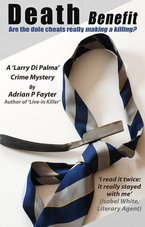
Adrian: Thanks, Ben, for your kind comments. I've been getting positive feedback from a wide variety of readers, and that’s a very encouraging thing for a writer. Death Benefit does follow certain crime writing conventions, but the protagonist/narrator, Larry Di Palma, works as a benefit fraud investigator. This allows me to create realistic investigation scenarios, but also means that Larry can stumble into danger in a believable way, because he doesn't have the same training or back-up team as a police detective. The book can be classed as a thriller, but it has a little less action than others in that genre. The atmosphere, characterisation and the cynical sense of humour of its narrator are all just as important to me. And there’s nothing less convincing than corpse after corpse appearing on the page...
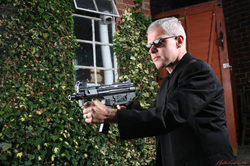
Adrian: I’ve been writing for a very long time, and, as many of us do, I’ve experimented with poetry and short stories, and written an early, semi-autobiographical novel. Crime fiction is, broadly speaking, the biggest selling genre in the UK, so it made sense to consider moving in that direction with a view to getting published. But crucially, the result is a book written very much in my own voice, and saying things that I want to say. Readers may spot the influence of the earliest of Len Deighton’s spy novels in different aspects of the book; not least in the free gifts that come with purchases made directly from me or my website.
Ben: Haha, yes indeed. So what is it about Len Deighton's novels that you like and is there any particular essence of them you've tried to capture in your own style?
Adrian: His early books brilliantly describe the bureaucracy and office politics of espionage. They are also very funny and economical with their descriptions. I love the start of Billion Dollar Brain: ‘It was the morning of my hundredth birthday,’ is the perfect way to introduce the narrator’s hangover and the way he has let down his girlfriend the night before. The drab form-filling and the seedy locations such as the multi-storey car park in Death Benefit are there to create a sense of realism; locations and setting are important in the way a writer creates a mood or atmosphere.
Ben: I was really impressed with the dialogue in your book and the characters as a whole. Larry Di Palma is a great character. It had me laughing out loud in a few places. Did you do any research or use any techniques to get these characters voices to come through so clear?
Adrian: I remember in one of our MA classes we were talking about our characters, and I said that Larry had been with me for so many years that I couldn’t remember how he started out; however, he is basically me. And I think it’s true that a lot of his cynicism, and the conflict he feels between laziness and professionalism are present in my own character. Other readers have asked me about research I did in order to create a realistic setting and story. Well, years ago I worked in various roles in three different Jobcentres, and although I have altered some of the jargon and procedures, I think the result overall reflects nicely the bureaucratic world of benefit claims and benefit fraud. I’m pleased with the authenticity of the setting and characters, because any novel depends upon them, no matter whether literary or genre fiction.
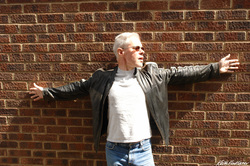
Adrian: The feedback from fellow students and tutors can be invaluable, but it has to come at the right time for each individual writer. I think I benefited immensely from doing the MA course at York St John University because I was able to fine-tune a completed novel as well as present some new experimental work. The key is to start a degree or MA course when you are going to benefit the most from a lot of constructive criticism. That could be as a mature, experienced writer or as a complete beginner: it depends on the individual.
Ben: You self-published your book with Matador. Can you tell us a little about that?
Adrian: I had strong interest from three different literary agents, but ultimately none of them was successful in taking the book into a publishing deal. However, I have since become a bit of a convert to the idea of self-publishing, which offers many potential advantages to any writer.
Ben: Wow, that's great. So what are these advantages that made you go with self-publishing and do you have any top tips for people considering self-publishing?
Adrian: My top tips for self-publishing can be seen on my website, but the most important one is probably this: ‘Don’t be in too much of a hurry, don’t set unrealistic deadlines, and always consider quality of product over speed of publication.’ The processes of publishing, marketing and selling inevitably take up as much time as writing itself. For example, despite the fact that my completed manuscript had been reviewed by different literary agents and by my university tutor, I still ended up doing four further proof reads before I was happy to go to press. I really hope readers haven’t spotted any more typos in the final product! As to advantages, well, if I sell a book directly from my website, book launch or other event, I keep 100% of the cover price. If a publisher sells via a bookshop, I get about 30%.
Ben: So the book you've released mentions a sequel - can you tell us anymore about the next Larry Di Palma adventure?
Adrian: The next novel, Live-in Killer, is currently in preparation – a taster is given at the end of Death Benefit in both its printed and e-book forms. Readers can also find a short story (with the promise of more to come) at the Rowntree Park Words from a Bench project.
Ben: Thanks so much for your time Adrian and all the best with the next novel.
Adrian: Thanks, Ben, and happy writing to you, too!
Website: http://crimebooks.wordpress.com
(Buy paperback copies here, and learn about crime writing, self-publishing and more)
Amazon: http://www.amazon.co.uk/Death-Benefit-Adrian-P-Fayter/
(Buy paperback, download for Kindle and read reviews here)
It's kept me very busy, but now I'm motoring on. In the next few months you can expect to see, blogs, an interview with the very talented writer N.E David and information about the anthology I'll be being published in at Christmas. (I know, I know, don't mention Christmas just yet).
Anyway, keep an eye on the page and you'll be hearing more soon.
Author
Ben Warden - Editor of the #SFFiction project and author of 'Life Without', which made the top ten literary fiction e-books on amazon.
Categories
All
Adam M Booth
Adrian P Fayter
Amazon Breakthrough Novel Award
Ben Warden
Birds Of The Nile
Blog Interview
Book
Book Launch
Character
Characterisation
Christmas Lites
Christopher Brunt
Create Space
Death Benefit
Drive
Emergent Writers
Event
Gillian Firth
Gillian Flynn
Gillian Mk2
If Only You Knew
Jo Unwin
Julia Churchil
Karen Hill Green
Karen Hill-Green
Kathlene Postma
KDP
Language
Life Without
Marketing Your Writing
Miles Salter
My Writing
Ncadv
N.E David
N.E David
Neutral Magazine
Oliver Munson
Phil Lickley
Quick Fictions
Ralph And The Purple Fly
Rob Goll
Rowntree Park
Self Publishing
Self-publishing
Self-publishing And Reviews
Socrates Adams
Understanding Reviews
Will Self
Words From A Bench
Writers And Artists Year Book
Writing
York Literature Festival
York St John University
Blog Archive
January 2020
January 2019
June 2018
February 2018
August 2017
April 2017
February 2017
November 2016
July 2016
June 2016
May 2016
April 2016
February 2016
January 2016
November 2015
June 2015
April 2015
February 2015
December 2014
October 2014
August 2014
July 2014
June 2014
May 2014
April 2014
March 2014
February 2014
January 2014
December 2013
November 2013
October 2013
August 2013
July 2013
June 2013
May 2013
April 2013
March 2013
February 2013
January 2013
December 2012
November 2012
October 2012

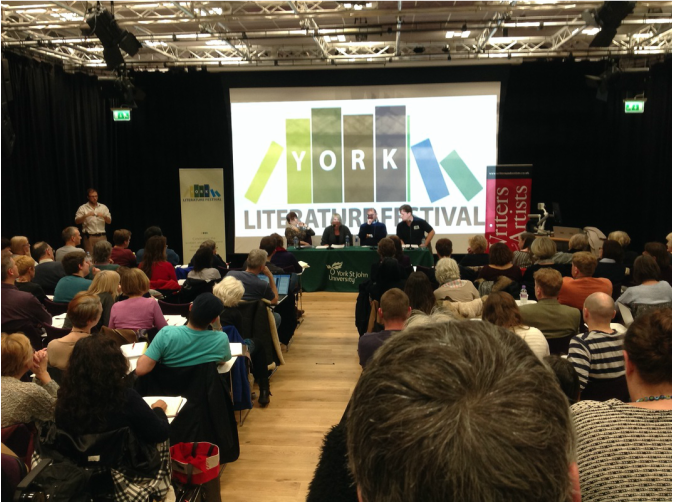
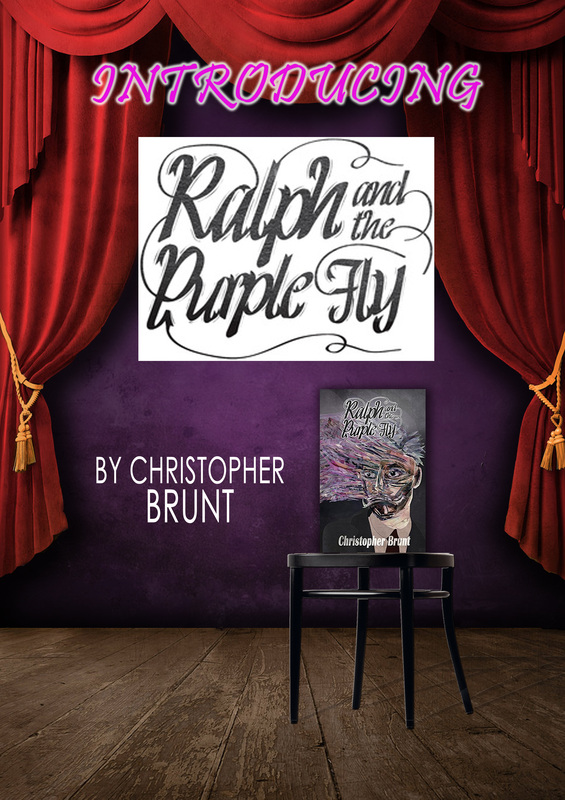
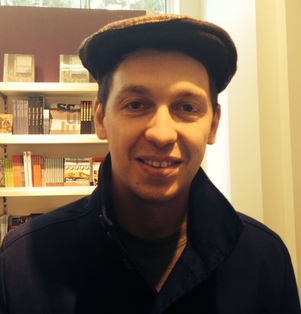
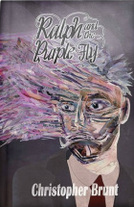
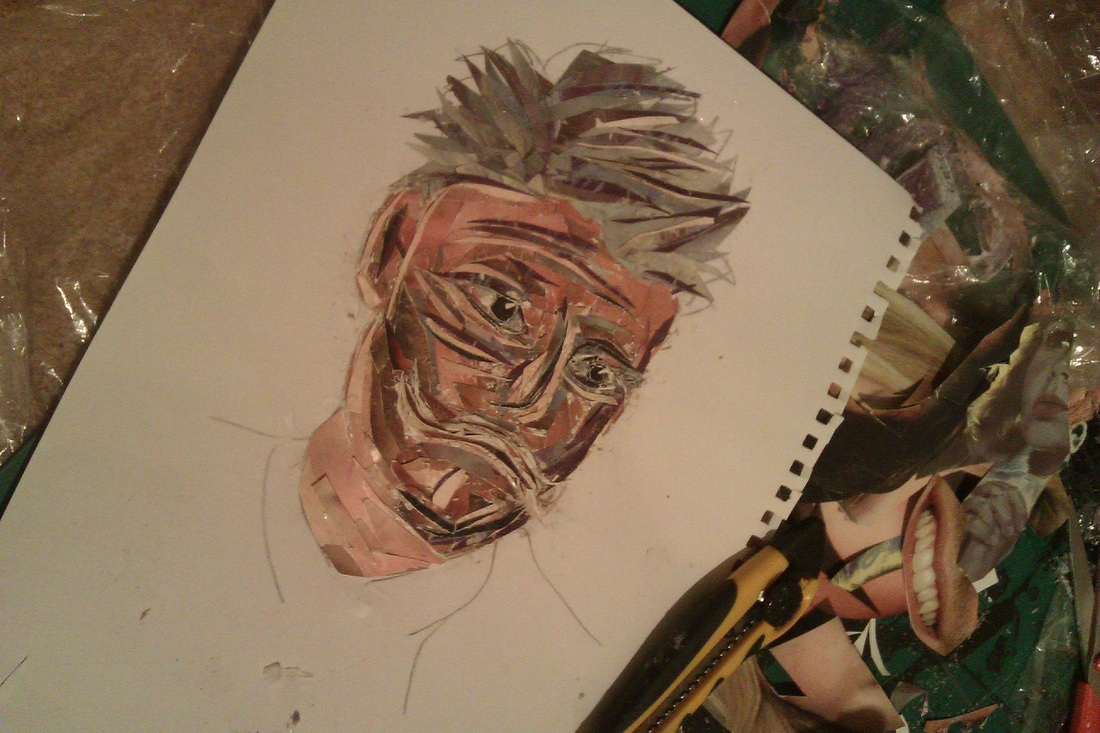
 RSS Feed
RSS Feed
